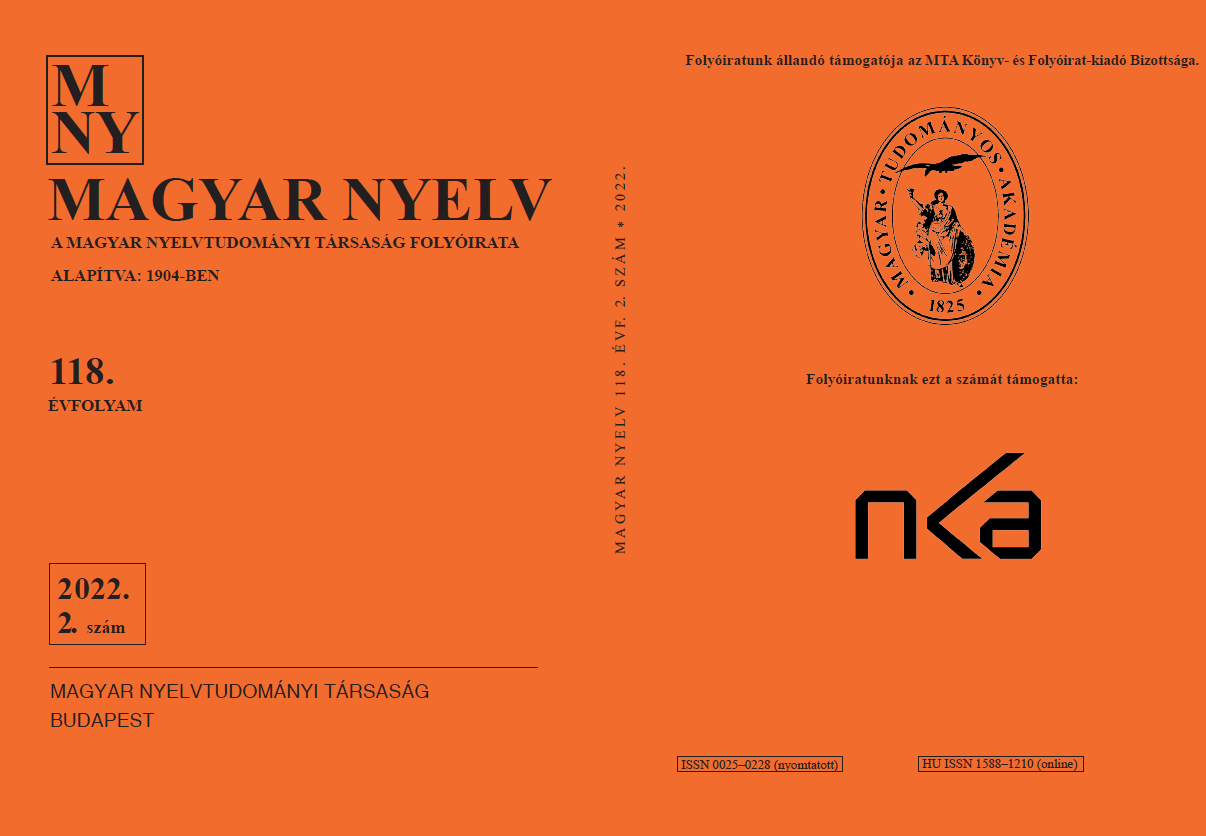Finno-Ugric linguistics in Hungary after the turn of the millennium
An overview
DOI:
https://doi.org/10.18349/MagyarNyelv.2022.2.129Keywords:
history of science, Finno-Ugric studies in Hungary in the 21st century, etymology, studies in phonetics morphology and syntax, linguistic affinities of the Hungarian language, language policyAbstract
The present essay provides an overview of the main achievements of Finno-Ugric linguistics in Hungary in the new millennium. During the previous decades, considerable alignment took place on the scene of Finno-Ugric studies. The paradigm shift is noticeable in multiple areas. The largescale syntheses in historical phonetics and etymology had been completed by the end of the past century; therefore, these topics are less popular now. Studies of the spoken language, issues within sociolinguistics (especially bilingualism, language attrition and the study of revitalization processes) and studies of the development of standard literary languages have gained prominence. The ethnography and folklore of minor Finno-Ugric peoples are also becoming significant. Through the research of the spoken language, more and more essays are being written in theoretical linguistics and linguistic typology has shown significant progress. At the same time, information gained about the present state of languages also has a boosting effect on historical studies. English language studies strengthen the international embeddedness of Hungarian Finno-Ugric studies. The paradigm shift has had a similar course in Finland and Estonia. This paper reviews the most important achievements of etymological, phonetic, morphological, and syntactic studies, with an emphasis on monographs and papers published on international platforms. Language policy, studies on bilingualism, developments in the research of standard literary languages and text publishing are also discussed. Special attention is given to how the scholars act against the Anti-Finno-Ugrist views that have gained ground recently.
Downloads
Published
Issue
Section
License

This work is licensed under a Creative Commons Attribution-NonCommercial-NoDerivatives 4.0 International License.
Magyar Nyelv is a Diamond Open Access periodical. Documents can be freely downloaded and duplicated in an electronic format, and can be used unchanged and with due reference to the original source. Such use must not serve commercial purposes. In the case of any form of dissemination and use, Hungarian Copyright Act LXXVI/1999 and related laws are to be observed. The electronic version of the journal is subject to the regulations of CC BY-NC-ND (Creative Commons – Attribution-NonCommercial-NoDerivatives).
The journal permits its authors, at no cost and without any temporal limitation, to make pre-print copies of their manuscripts publicly available via email or in their own homepage or that of their institution, or in either closed or free-for-all repositories of their institutions/universities, or other non-profit websites, in the form accepted by the journal editor for publication and even containing amendments on the basis of reviewers’ comments. When the authors publicize their papers in this manner, they have to warn their readers that the manuscript at hand is not the final published version of the work. Once the paper has been published in a printed or online form, the authors are allowed (and advised) to use that (post-print) version for the above purposes. In that case, they have to indicate the exact location and other data of the journal publication. The authors retain the copyright of their papers; however, in the case of an occasional secondary publication, the bibliographical data of the first publication have to be included.



